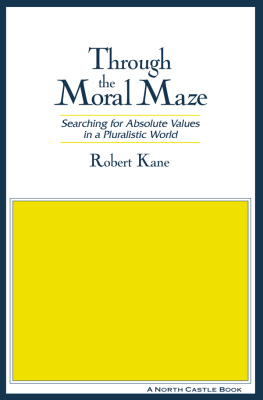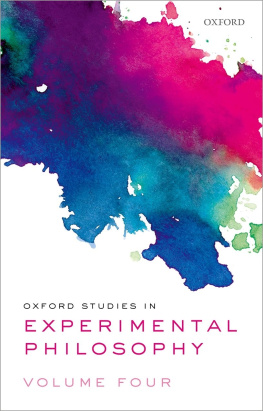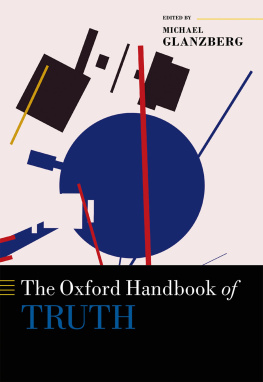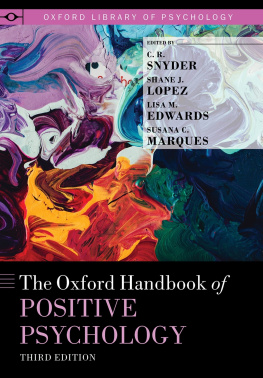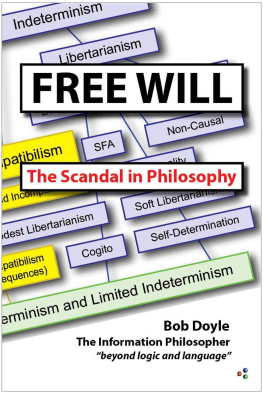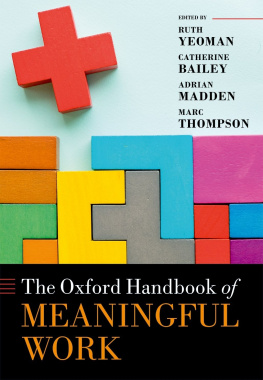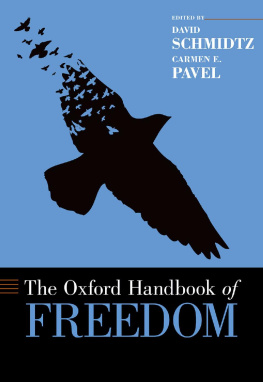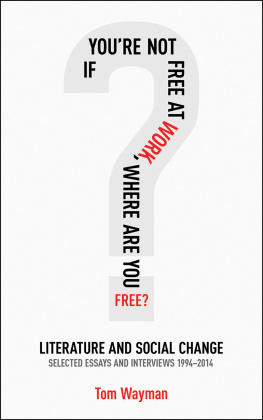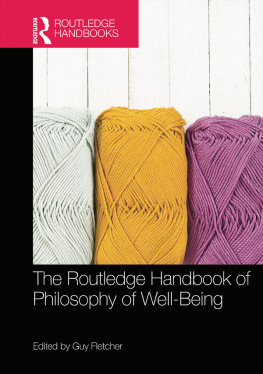Robert Kane
Print publication date: Sep 2012
Print ISBN-13: 9780195399691
Published to Oxford Handbooks Online: Sep-12 Subject: Philosophy
DOI: 10.1093/oxfordhb/9780195399691.001.0001
[UNTITLED]

Oxford University Press, Inc., publishes works that further
Oxford University's objective of excellence
in research, scholarship, and education.
OxfordNew York
AucklandCape TownDar es SalaamHong KongKarachi
Kuala LumpurMadridMelbourneMexico CityNairobi
New DelhiShanghaiTaipeiToronto
With offices in
ArgentinaAustriaBrazilChileCzech RepublicFrance Greece
GuatemalaHungaryItalyJapanPolandPortugalSingapore
South KoreaSwitzerlandThailandTurkeyUkraineVietnam
Copyright 2011 by Oxford University Press, Inc.
Published by Oxford University Press, Inc.
198 Madison Avenue, New York, New York 10016
www.oup.com
Oxford is a registered trademark of Oxford University Press
All rights reserved. No part of this publication may be reproduced,
stored in a retrieval system, or transmitted, in any form or by any means,
electronic, mechanical, photocopying, recording, or otherwise,
without the prior permission of Oxford University Press.
Library of Congress Cataloging-in-Publication Data
The Oxford handbook of free will / edited by Robert Kane. 2nd ed.
p.cm. (Oxford handbooks)
Includes bibliographical references and index.
ISBN 9780195399691 (alk. paper)
1.Free will and determinism.2.Philosophy, Modern20th century.3.Ethics, Modern20th century.I.Kane, Robert, 1938
BJ1461.F742011
123'.5dc222010032533
135798642
Printed in the United States of America
on acid-free paper

Robert Kane
Print publication date: Sep 2012
Print ISBN-13: 8011
Published to Oxford Handbooks Online: Sep-12 Subject: Philosophy
DOI: 10.10xfordhb/8011.001.0001
Contributors
Mike Almeida is professor of philosophy and chair of the department of philosophy and classics at the University of Texas at San Antonio. He works primarily in metaphysics and philosophy of religion. He is the author of The Metaphysics of Perfect Beings (2008) and many articles in philosophy of religion, ethics, and metaphysics.
Harald Atmanspacher has been head of the Department for Theory and Data Analysis at the Institute for Frontier Areas of Psychology in Freiburg, Germany, since 18. He has been a faculty member of the C. G. Jung-Institute Zurich since 2004 and a faculty member of the Parmenides Foundation in Capoliveri, Italy, since 2005 and has been an associate fellow of Collegium Helveticum, ETH, in Zrich, Switzerland, since 200-in-chief of the journal Mind and Matter and writes and teaches in such areas as nonlinear dynamics, complex systems, psychophysical problems, and selected topics in the history and philosophy of science.
Mark Bernstein is the Joyce and Edward E Brewer Chair in Applied Ethics at Purdue University, and a founding fellow of the Oxford Centre of Animal Ethics. He has written Fatalism (12) and numerous articles on facets of the free will problem in Mind, Philosophical Studies, The Monist, and other journals. Most of his current research focuses on animal ethics. In addition to On Moral Considerability (18), Without a Tear (2004), and several articles, he has a forthcoming book provisionally entitled Human-Animal Relations (Palgrave Macmillan) that argues for a robust moral status of animals grounded on the fact that humans and animals share a loving relationship.
Bernard Berofsky is professor emeritus of Philosophy at Columbia University. His principal areas of interest are free will and moral responsibility, philosophy of mind, and metaphysical topics, including causation and the self. His major works are: Liberation from Self, Freedom from Necessity, Determinism, Free Will and Determinism (an anthology) and numerous articles in major philosophical periodicals. He is a member of the executive committee of the editorial board of the Journal of Philosophy and has taught at the University of Michigan, Vassar College, and the Hebrew University of Jerusalem.
Robert C. Bishop is associate professor of Physics and Philosophy and the John and Madeleine McIntyre Professor for the Philosophy and History of Science at Wheaton College. He has published numerous articles on reduction and emergence, nonlinear dynamics, complexity, determinism and free will. His most recent book is The Philosophy of the Social Science.
Randolph Clarke is professor of philosophy at Florida State University. He is the author of Libertarian Accounts of Free Will (2003) and a number of articles on agency, free will, and moral responsibility, including Toward a Credible Agent-Causal Account of Free Will (1993), Modest Libertarianism (2000), and Dispositions, Abilities to Act, and Free Will: The New Dispositionalism (2009).
Daniel C. Dennett is university professor and Austin B. Fletcher Professor of Philosophy at Tufts University. He is also the co-director of the Center for Cognitive Studies there. His most recent book on free will is Freedom Evolves (2003) and among his recent articles are Toward a Science of Volition, with W. Prinz and N. Sebanz, in Disorders of Volition, edited by N. Sebanz and W. Prinz (2006), and Some Observations on the Psychology of Thinking about Free Will, in Are We Free? Psychology and Free Will, edited by John Baer, James C. Kaufman, Roy F. Baumeister (OUP, 2008).
Laura W. Ekstrom is chair of the Department of Philosophy at the College of William & Mary. She is a graduate of Stanford University (B.A., Philosophy) and the University of Arizona (Ph.D., Philosophy). She is the author of Free Will: A Philosophical Study (2000) and the editor of Agency and Responsibility (2001). Her published articles include A Coherence Theory of Autonomy (1993), Free Will, Chance, and Mystery (2003), Alienation, Autonomy, and the Self (2005), and Ambivalence and Authentic Agency (2010). She is currently writing a book on luck and free will.
John Martin Fischer is distinguished professor and chair of the Department of Philosophy, University of California, Riverside, where he holds a University of California President's Chair. He is the author of The Metaphysics of Free Will: An Essay on Control (1994); (with Mark Ravizza), Responsibility and Control: A Theory of Moral Responsibility (1998); and Four Views on Free Will, coauthored with Robert Kane, Derk Pereboom, and Manuel Vargas (2007). He is the author of a trilogy of collections of his essays with Oxford University Press: My Way: Essays on Moral Responsibility (2006); Our Stories: Essays on Life, Death, and Free Will (2009); and Deep Control: Free Will and Values (forthcoming 2011).
Ishtiyaque Haji is professor of philosophy at the University of Calgary. He has research interests in action theory, ethical theory, metaphysics, and philosophical psychology. His publications include Moral Appraisability (OUP, 1998). Deontic Morality and Control (2002), Moral Responsibility, Authenticity, and Education (2008, with Stefaan Cuypers), Freedom and Value (2009), and Incompatibilism's Allure (2009).
William Hasker (Ph.D., Edinburgh) is professor emeritus of philosophy at Huntington University, where he taught from 1966 until 2000. His main interests in philosophy are philosophy of religion and philosophy of mind. He is the author of Metaphysics (1983), God, Time, and Knowledge (1989), The Emergent Self
Next page

